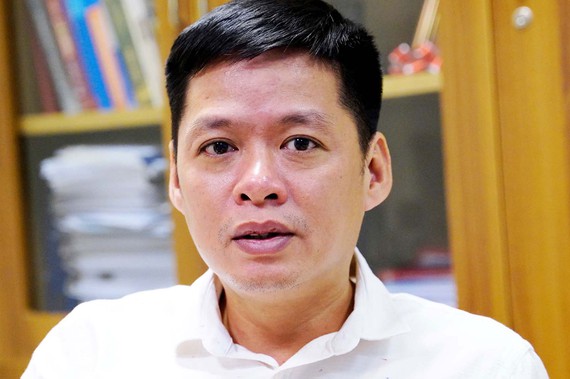.jfif) Opinion
Opinion


|
| Nguyễn Tư Long, deputy director of the MoHA's Department of Civil Servants-Public Employees. Photo sggp.org.vn |
Nguyễn Tư Long, deputy director of the Department of Civil Servants-Public Employees under the Ministry of Home Affairs, speaks to the newspaper Sài Gòn Giải Phóng (Liberated Sài Gòn) on sanctioning Government officer or public employees who break the law
Can you give us an overview of the Government’s draft decree on sanctions for Government officials and State employees working in public office?
This decree is an integration of Decree 27 on sanctioning public employees with Decree 34 on sanctioning Government civil servants. The decree has also detailed contents in the revised law and supplements to some articles in the Law on Government Officials and the Law on Public Employees. The draft law has been sent to concerned Government agencies and offices for comments and suggestions. In the next step, the Ministry of Home Affairs will submit a full report to the Government on the draft.
Why does the draft decree include sanctioning measures on Government officials or public employees who have already been disciplined by Party organisations?
In the course of drafting the decree, we have discussed quite a few factors. For any act encroaching upon Vietnamese laws, the violator is subject to either administrative or criminal sanctions depending on the seriousness of their actions, regardless they are a member of the Party or not or whether they are retired or not.
What will happen if the violator does not co-operate with the sanctioning council?
This is a very complicated issue. At the moment, the law drafting board tends to use administrative sanctions first and then Party sanctions later. Of course, the Ministry of Home Affairs will consult with concerned agencies to complete the decree before it is submitted to the Government for approval.
Did you face any challenges in writing the decree?
Under the current organisational laws, violators who are the chairmen, vice chairmen of the provincial people’s councils and communal officers will only face a form of punishment, namely dismissal. There are not procedures on how to punish them or any other forms of sanctioning. This issue should be covered in the draft decree.
What does the Ministry of Home Affairs hope to gain from this decree?
We hope when the decree comes to life, it will help us to solve problems with officials at the commune level and some position titles in Government offices. We also hope the decree will institutionalise rules on sanctioning retired Government officials.
Last but not least, when the decree comes to life, it will help reduce current cumbersome administrative procedures in our country. — VNS




